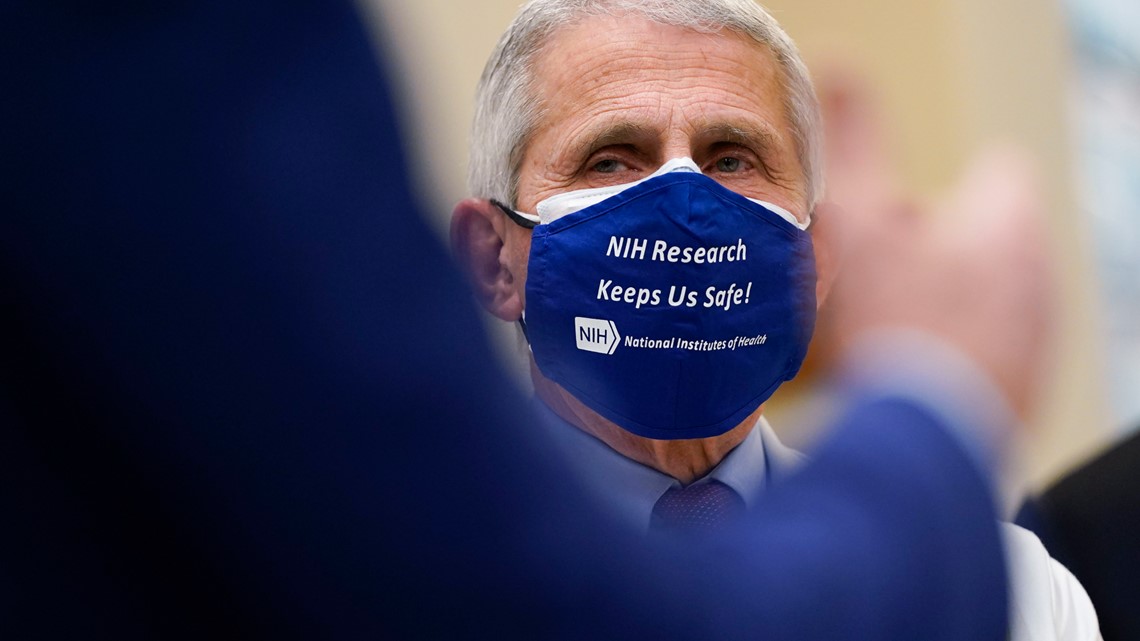WASHINGTON — Dr. Anthony Fauci says vaccinated Americans would “not necessarily” need to get booster shots this fall for further protection from COVID-19.
Fauci, the nation’s leading infectious disease expert, told CBS “This Morning” on Friday that scientists would be tracking data on the virus and possible variants. He says it was still “possible” an additional shot would be needed later this year to ward off possible infection.
Fauci also urged Americans to continue to follow CDC guidelines. He stressed those who haven't been fully vaccinated still need to wear masks even if they are largely spending time with people who have been inoculated.
On Tuesday, Dr. Fauci acknowledged the “confusion” after the Centers for Disease Control and Prevention last week said fully vaccinated people don’t need to wear masks in most instances, even indoors.
He told ABC News, “The problem and the issue is that we don’t have any way of knowing who is vaccinated and who’s not vaccinated.”
He says it is “reasonable and understandable” that some businesses and localities are maintaining mask requirements because they can’t be sure of an individual’s vaccination history. But he says it’s important to note those measures protect the unvaccinated from each other, and vaccines provide a high level of protection for those who have gotten them.
Fauci says children who are not vaccinated — including children under 12 who won’t be eligible for vaccines for months — should continue to wear masks indoors. But he says that recommendation could change as the CDC conducts more research and more Americans get shots.
On Friday, he also said those attending indoor sporting events, like the NBA playoffs starting this week, should follow the masking policies of the arena.


For most people, the coronavirus causes mild or moderate symptoms. For some, especially older adults and people with existing health problems, it can cause more severe illness, including pneumonia and death.
The United States has more than 33 million confirmed cases of COVID-19, according to data from Johns Hopkins University.
As of Friday, the U.S. had more than 588,000 deaths from the virus. Worldwide, there are more than 165 million confirmed cases with more than 3.4 million deaths.
Erin McHugh from TEGNA contributed to this report.

